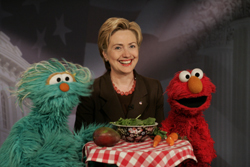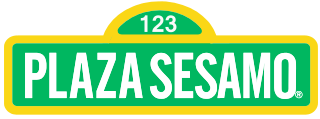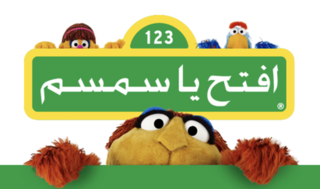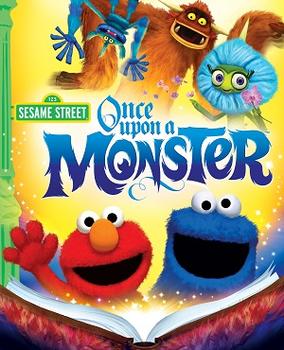Related Research Articles

Sesame Street is an American educational children's television series that combines live-action, sketch comedy, animation and puppetry. It is produced by Sesame Workshop and was created by Joan Ganz Cooney and Lloyd Morrisett. It is known for its images communicated through the use of Jim Henson's Muppets, and includes short films, with humor and cultural references. It premiered on November 10, 1969, to positive reviews, some controversy, and high viewership. It has aired on the United States national public television provider PBS since its debut, with its first run moving to premium channel HBO on January 16, 2016, then its sister streaming service Max in 2020.

Sesame Workshop, Inc. (SW), originally known as the Children's Television Workshop, Inc. (CTW), is an American nonprofit organization that has been responsible for the production of several educational children's programs—including its first and best-known, Sesame Street—that have been televised internationally. Television producer Joan Ganz Cooney and foundation executive Lloyd Morrisett developed the idea to form an organization to produce Sesame Street, a television series which would help children, especially those from low-income families, prepare for school. They spent two years, from 1966 to 1968, researching, developing, and raising money for the new series. Cooney was named as the Workshop's first executive director, which was termed "one of the most important television developments of the decade."

Elmo is a red Muppet character on the children's television show Sesame Street. A furry red monster who speaks in a high-pitched falsetto voice and frequently refers to himself in the third person, he hosts the last full five-minute segment on Sesame Street, "Elmo's World", which is aimed at toddlers. He was originally performed by Kevin Clash. Following Clash's resignation in late 2012, Elmo has been performed by Ryan Dillon.
This is a list of recordings released by the TV series Sesame Street. Many of the early Columbia and CTW releases have been re-released on the Sony Wonder label, and later by The Orchard and Warner Music Group.

The preschool educational television program Sesame Street was first aired on public television stations on November 10, 1969, and reached its 54th season in 2023. The history of Sesame Street has reflected changing attitudes to developmental psychology, early childhood education, and cultural diversity. Featuring Jim Henson's Muppets, animation, live shorts, humor and celebrity appearances, it was the first television program of its kind to base its content and production values on laboratory and formative research, and the first to include a curriculum "detailed or stated in terms of measurable outcomes". Initial responses to the show included adulatory reviews, some controversy and high ratings. By its 40th anniversary in 2009, Sesame Street was broadcast in over 120 countries, and 20 independent international versions had been produced. It has won eleven Grammys and over 150 Emmys in its history—more than any other children's show.

Plaza Sésamo is the first international co-production of the educational children's television series Sesame Street. Its first season premiered in Mexico in 1972, and the last season ended in 2018 during the holiday season and the 50th anniversary of Sesame Street, but the show returned in 2020. It has also aired throughout Latin America, to a potential audience of 25 million children in 34 countries. Unlike some of the earliest co-productions, which consisted of dubbed versions of Sesame Street sketches with local language voice-overs, Plaza Sésamo along with Vila Sésamo were actual co-productions. Half of the show was adapted from the American show, and half was original material, created in Mexico by Mexican writers, performers, and producers. The first season consisted of 130 half-hour episodes. The Plaza Sésamo development process was similar to that of the American show. Its goals were developed by local experts in television, child development, and early education during curriculum seminars in Caracas, Venezuela. Sésamo's goals emphasized problem solving and reasoning, and also included perception, symbolic representation, human diversity, and the child's environment. Other goals included community cooperation, family life, nutrition, health, safety, self-esteem, and expressing emotions. Early reading skills were taught through the whole language method. The show's budget for the first and second seasons was approximately US$1.6 million.
Elmo's World is a segment that is shown at the end of the American children's television program Sesame Street which premiered on November 16, 1998, as part of a broader structural change to the show. It originally lasted fifteen minutes at the end of each episode. The segment ran until 2009, and then returned in 2017. The segment was designed to appeal to younger viewers and to increase ratings, which had fallen in the past decade. The segment is presented from the perspective of a three-year-old child as represented by its host, the Muppet Elmo, performed by Kevin Clash in the original series and Ryan Dillon in the 2017 reboot.
Barrio Sésamo is the Spanish co-production of the popular U.S. children's television series Sesame Street produced by Televisión Española and Sesame Workshop from 1979 to 2000, the equivalent of Plaza Sésamo in Latin America. All characters adopted Spanish names while for the title of the series a more appropriate Spanish name was chosen: barrio (Neighborhood) instead of Street (calle).

Iftah Ya Simsim is the first international co-production of the American children's television series Sesame Street created in the Arab world. It premiered in Kuwait on September 14, 1979, and was broadcast in 22 Arabic-speaking countries, running until June 23, 1989, due to the outbreak of the first Gulf War. The program continued to be well-known decades after it went off the air.
Vila Sésamo is a Brazilian co-production of the first preschool television programme Sesame Street. As of 2009 it airs on TV Rá-Tim-Bum. As of 2016, similar to Plaza Sésamo, new seasons air under the title Sésamo. The series debuted on October 12, 1972, moving from TV Cultura to SKY Play on June 25, 2020.
Sesame Street... 20 Years & Still Counting is a 1989 television special celebrating the 20th Anniversary of Sesame Street. Hosted by Bill Cosby, the special aired on Friday, April 7, 1989, on NBC.
Sesame Beginnings is a line of products and a video series, spun off from the children's television series Sesame Street, featuring baby versions of the characters. The line is targeted towards infants and their parents, and products are designed to increase family interactivity.
Sesame Street international co-productions are adaptations of the American educational children's television series Sesame Street but tailored to the countries in which they are produced. Shortly after the debut of Sesame Street in the United States in 1969, television producers, teachers, and officials of several countries approached the show's producers and the executives of the Children's Television Workshop (CTW), renamed Sesame Workshop (SW) in 2000, about the possibility of airing international versions of Sesame Street. Creator Joan Ganz Cooney hired former CBS executive Michael Dann to field offers to produce versions of the show in other countries.
Two syndication packages of Sesame Street episodes, titled Sesame Street Unpaved and 123 Sesame Street, were produced by the Noggin cable channel in 1999. At the time, Sesame Workshop co-owned Noggin and many of the company's older programs were replayed on the channel. Unpaved aired until 2002, and 123 aired until 2005.

Children and Television: Lessons from Sesame Street (1974) is a non-fiction book written by Gerald S. Lesser, in which he describes the production of Sesame Street, and the formation and pedagogical philosophy of the Children's Television Workshop. Lesser was a professor at Harvard University, studying how social class and ethnicity interacted with school achievement and was one of the first academics in the US who researched how watching television affected children and their development. He was initially skeptical about the potential of using television as a teaching tool, but he was eventually named as the advisory board chairman of the Children's Television Workshop (CTW), the organization created to oversee the production and research of Sesame Street, and was the show's first educational director. Lesser wrote the book early in Sesame Street's history, to evaluate the show's effectiveness, to explain what its writers, researchers, and producers were attempting to do, and to respond to criticism of Sesame Street.
Sesame Street is an American children's television series that is known for its use of format and structure to convey educational concepts to its preschool audience, and to help them prepare for school. It utilizes the conventions of television such as music, humor, sustained action, and a strong visual style, and combines Jim Henson's Muppets, animation, short films, humor, and cultural references. The show, which premiered in 1969, was the first to base its contents, format, and production values on laboratory and formative research. According to researchers, it was also the first to include a curriculum "detailed or stated in terms of measurable outcomes".

Sesame Street: Once Upon a Monster is a Sesame Street video game developed by Double Fine Productions and published by Warner Bros. Interactive Entertainment in conjunction with Sesame Workshop. The game was released in North America on October 11, 2011 for the Xbox 360 console. Players use the Kinect controller to control the Muppet characters Elmo and Cookie Monster and new characters Marco and Seamus as they sing and dance. Though Once Upon a Monster represents Double Fine's first foray into licensed property, the title started as one of four smaller titles, alongside Costume Quest, Stacking, and Iron Brigade, during an "Amnesia Fortnight" period during Brütal Legend, and was later found to be easily adapted to the Sesame Street property. The original prototype of the game, titled Happy Song, was released for Microsoft Windows as part of the Amnesia Fortnight 2012 bundle on November 19, 2012. Microsoft developed and released another Sesame Street game that used the Kinect sensor, Kinect Sesame Street TV, in 2012.
A few months after the 1969 premiere of the children's television program Sesame Street in the U.S., talks began in the United Kingdom to broadcast the programme or develop a co-production on British television. The idea was controversial at the time; the BBC was opposed to it, and ITV was reluctant. Response from parents, educators, and television officials to the show was varied, ranging from distaste to acceptance. After much public debate, the BBC chose not to air Sesame Street for several reasons, including the show's educational methods, its creation for American audiences, and the UK's long history of quality educational television programmes for young children. ITV, after much research, including a report entitled Reactions to Sesame Street in Britain, 1971, chose to air Sesame Street on a limited basis. It then switched to Channel 4 in the 1980s and aired there until 2001, when it was pulled from its regular schedule, replaced by The Hoobs.

Batibot is a Philippine television educational show produced by the Philippine Children's Television Foundation (PCTF). It debuted in 1984 as the replacement of Sesame, a co-production of PCTV and the Children's Television Workshop (CTW) from 1983 to 1984.

Sesame Place is a theme park chain based on the children's educational television program Sesame Street. In the United States, it is owned and operated by United Parks & Resorts under an exclusive license from Sesame Workshop, the non-profit owner of Sesame Street.
References
- ↑ "Loblaws and Sesame Workshop Introduce Exclusive Line of Sesame Beginnings and Sesame Street Products to Canada". Sesame Workshop Press Release. April 20, 2005. Retrieved October 22, 2009.
- ↑ 40 Things You Didn't Know About Sesame Street (Season 40 Presskit), Sesame Workshop Press Release, 2009, retrieved October 22, 2009
- ↑ Gliatto, Tom (December 23, 1996). "Elmo Saves Christmas". People., accessed in EBSCOhost.
- ↑ "Elmos to get 'Sesame St.' testing". Daily News. New York. September 21, 2007.
- ↑ Sesame Workshop: Sesame Street Season 37 Press Kit Archived 2008-05-27 at the Wayback Machine
- ↑ Sesame Street Live Press Kit, Minneapolis MN: Vee Corporation, 2004.
- ↑ Bryant, Thomas L. (July 1997). "Big Bird and Ford". Road & Track. Retrieved March 2, 2006., accessed through EBSCOhost.
- ↑ Viadero, Debra (March 2, 2005). "Grover Promotes Harvard Course". Education Week. pp. 1/5. Retrieved March 2, 2006. The course itself was developed by professor Joseph Blatt, who told Education Week "it focuses on how to harness the positive power of the media to improve children's health, particularly problems that stem from alarming levels of obesity among youngsters nationwide." Guests to the course include Sesame Workshop staff. Students are required to pitch media projects to promote healthy behaviors among 6- to 9-year-olds to Sesame executives at the end of the course.
- ↑ Bruce Morton, "Mr. Elmo goes to Washington". Atlanta, GA: CNN, April 24, 2002. The characters of Sesame Street have a major presence in Washington. President Bill Clinton's 1997 inaugural guests included Elmo. (Roberts, Roxanne (January 13, 1997). "For inauguration celebration, a group of diverse diversions". Washington Post., through EBSCOhost.)
- ↑ SESAME WORKSHOP NAMES NEW LICENSING REP FOR THE BENELUX Archived 2007-09-30 at the Wayback Machine
- ↑ Previously The Licensing Company Ltd. held the British rights to Sesame Street. Its licensees included Reed Books Children's Publishing for books. ( "Reed to publish Sesame Street Books in the UK". Publishers Weekly. April 28, 1997.)